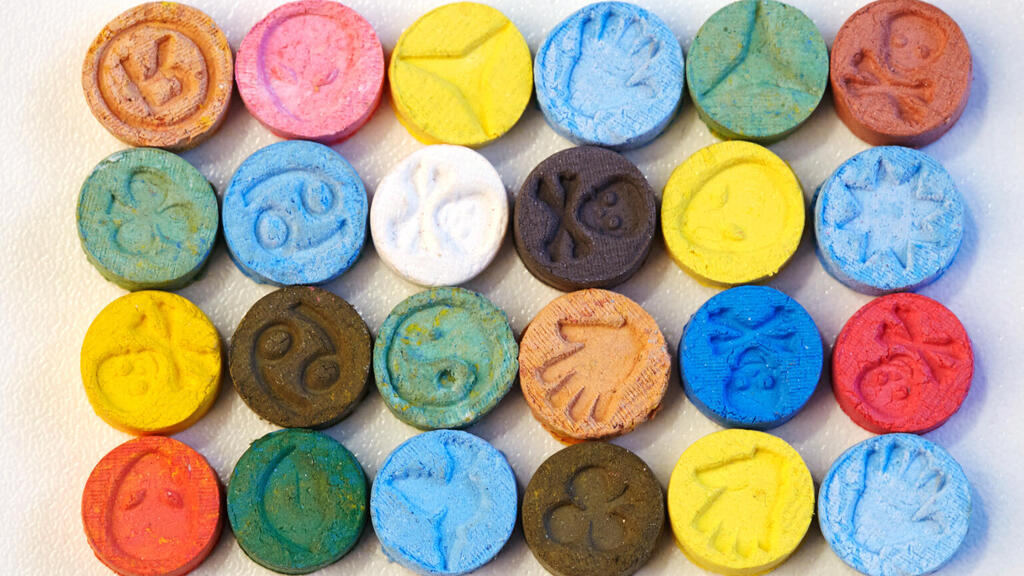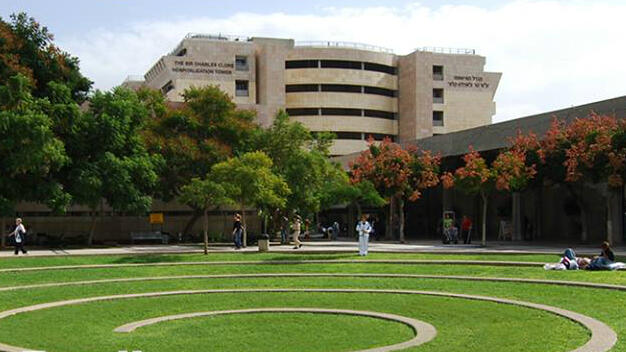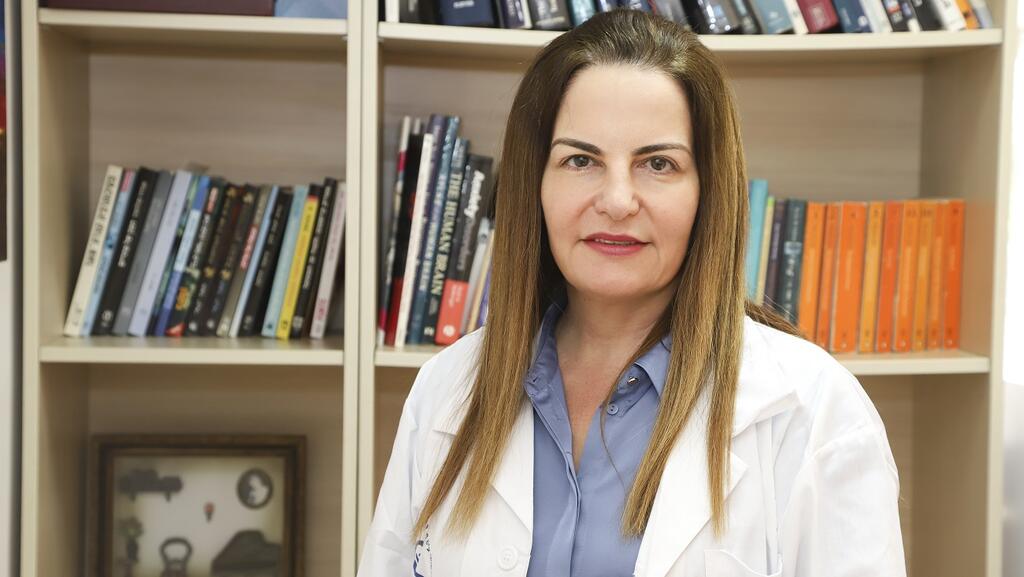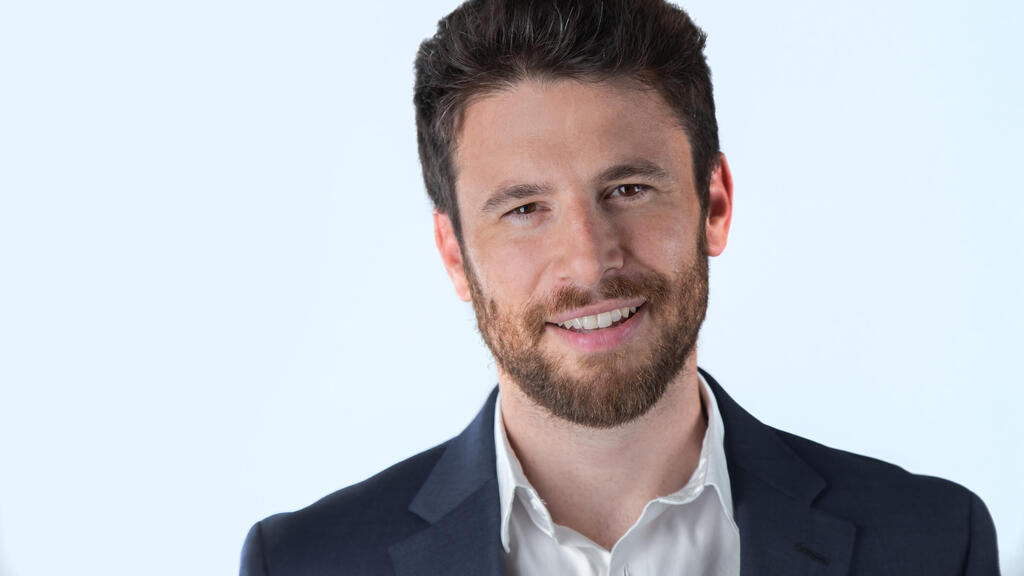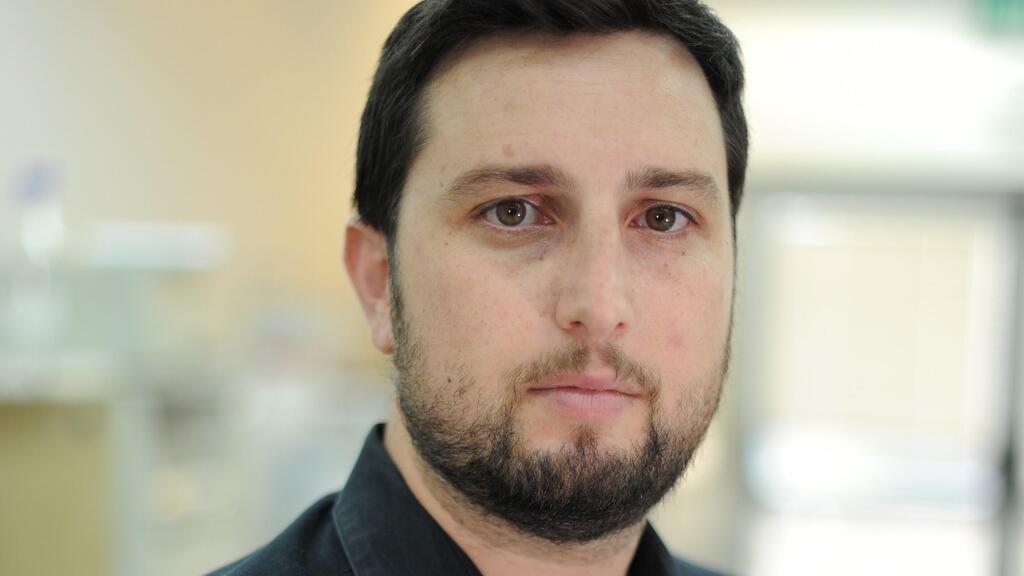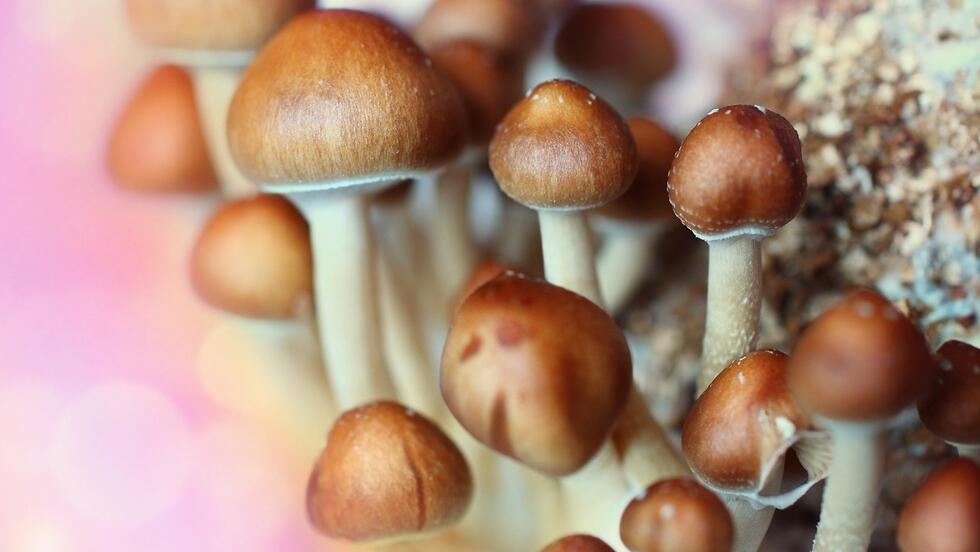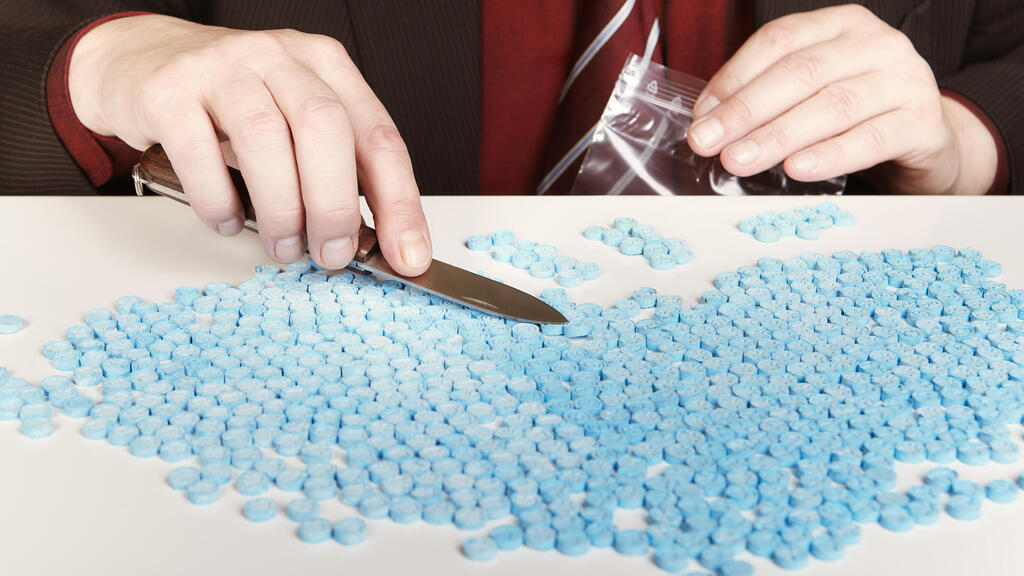If all goes according to plan, in the first quarter of 2023, the FDA will approve the use of MDMA for treating PTSD. Israel is expected to follow suit. In other words, the party drug we know as “Ecstasy,” will become a recognized treatment in Israel.
Head of Psychiatric Department B at the Sheba Medical Center at Tel Hashomer Hospital Dr. Revital Amiaz directs research into treating post-traumatic stress disorder (PTSD) by combining MDMA and psychotherapy. “MDMA makes psychotherapy more efficient,” she explains. “Most PTSD treatments are psychological. We know that psychotherapy helps PTSD, but with one session per week, it can take years to see any real improvement. Psychotherapy combined with MDMA speeds up this process.”
Dr. Amiaz admits that research has not yet proven how MDMA works, “but we do know that it makes neurotransmitters in the brain release serotonin, dopamine and noradrenaline, creating a euphoric sensation, which helps the patient focus on emotional issues. MDMA also releases oxytocin, a substance released following childbirth makes the mother bond with her newborn baby. MDMA may also help patients create a trusting bond with the psychologist in a sympathetic treatment setting. MDMA helps patients quickly get to deeper, more traumatic, levels which speeds up the treatment period.”
The most intensive psychological treatment available for the study stands at 50 hours over a three-month period. Treatment further includes three eight-hour sessions in which the patient is treated either with MDMA or a placebo. Research indicates that two months following the end of the treatment, 70% of patients exhibit improvement in PTSD symptoms.
The international study, in which Sheba participated, sampling 90 patients, was published in 2021 in “Nature Medicine” periodical. It was funded by the Multidisciplinary Association for Psychedelic Studies (MAPS), which has been researching the use of mind altering substances for treatment since the 1980s.
In the study, 83% of patients given MDMA responded to the treatment – compared to only 52% in the placebo group. Two months later, 62% of patients receiving MDMA displayed a noticeable improvement in PTSD symptoms – compared to just 25% in the placebo group.
“Some 30% were cured following the MDMA treatment compared to only 4% in the placebo group. We’re now looking into what happens a full year after the end of the treatment. This study is groundbreaking. Results clearly show that the effect of the treatment is very strong and it really can cure. There has been no specific treatment for the actual PTSD until now.”
This promising news follows a series of studies, casting doubt on the effectiveness of drugs, which are widely used for treating depression and anxiety. No less than 17 studies published last month in the science periodical “Nature” investigated the connection between depression and serotonin. These studies found insufficient evidence for the widely held belief that depression is caused by serotonin levels.
Dr. Amiaz tells us the Health Ministry plans to introduce MDMA treatment after finalizing research next month - without waiting for FDA approval. She stresses that despite MDMA’s reputation as a party drug, the treatment conducted for research purposes has been highly supervised. “We ensure that our patients have no history of psychotic episodes and have no potential for psychosis.
“As a head of a psychiatric ward, almost every day, someone comes in who has taken MDMA, Ketamine, Mushrooms or some other substance that brought on a psychotic episode, so we have to be very careful on this front.”
The treatment is also very closely supervised: “At clubs and parties, people dehydrate. They mix their drugs with alcohol. They’re not really sure where the drugs came from or what’s in them, and they can have the most horrific effects. Here, we make sure that patients are drinking enough water. We keep measuring their temperature, pulse and blood pressure. Our greatest challenge is providing the right setting for this treatment. Otherwise, it can all end up as a bad trip and the patient will just get worse."
Will we soon be seeing psychedelics used widely for psychiatric treatment?
“I hope so. It’s very sensitive. Psychedelic drugs have been used in the past for treatment, but it was ruined when the drugs found their way out of the treatment environment. It could happen again. It very much depends on how the supervision is conducted. In the case of medical marijuana, we see that it does make its way out to youngsters and at-risk communities where it can cause psychosis for some people. “
Ketamine treatment has already been approved. What’s going on with that?
“Ketamine can only be obtained through the pharmacy at the medical center, and only under the supervision of a psychiatric doctor. At the moment, we don’t have enough clinics that treat using Ketamine and it’s not available for everyone who needs it. Waiting lists are very long.”
The costliest resource - psychiatric treatment hours - is in short supply. “MDMA treatment includes 50 hours of psychotherapy with two therapist presents at any given time. It’s a year-long treatment compressed into three months. What we want is a purpose-built clinic. This requires resources that need to be funded from somewhere”
The Health Ministry is familiar with research proving the positive effects of psychedelic substances. “We mustn’t forget that for some people, these substances can cause psychotic and extremely depressive episodes. The Health Ministry has confirmed that it is working on research for treating post trauma patients with MDMA with five medical centers in Israel - Lev Hasharon, Sheba, Rambam, Be'er Sheva and Be'er Yaakov.”
Dr. Itai Kahana, is a Los Angeles based clinical psychologist specializing in trauma treatment and the connection between the body and mental health. As part of his research and training, he experienced MDMA treatment himself: “I felt the difference two weeks after the MDMA treatment.”
How did the MDMA affect you?
“I could release myself from the bonds of restrictive fears and look at events in my life and respond to them in a way that wouldn’t have been possible without the treatment. It’s a kind of liberation. The processes are non-verbal, but rather they take on the form of feelings and senses.”
The treatment includes preparatory and integration sessions. “For me, these sessions were very important. On the days leading up to the MDMA treatment, one abstains from sex, caffeine, meat and alcohol. On the days following the treatment, patients don’t use electronic screens. During the session itself, the music and interaction with the psychologists contributes enormously to the experience, which includes reflecting on momentous or frightening experiences in one’s life. It allowed me to process all my feelings empathetically and from a new perspective.”
Dr. Kahana is also awaiting FDA approval to allow him to conduct psychological treatment using MDMA. “It’s ideal for trauma treatment as it neutralizes the left amygdala in the brain, which responds to fear. It allows the patient to look at frightening experiences without implementing their own defense mechanisms. MDMA also releases large amounts of serotonin which contain oxytocin that makes us like ourselves more and feel closer to the psychologist. Unlike other psychedelic substances, MDMA is not hallucinogenic, but rather the psychedelic experience derives from the large quantities of serotonin and oxytocin and possibly further substances that we don’t know about yet.”
Dr. Kahana explains that “new and unexpected memories and experiences come up. The patient needs to be allowed to feel without being judged, which is difficult for us as therapists. Our job is to listen and support and let the patient do their own thing.”
Music also plays an important role. Dr. Kahana tells us: “The music evokes memories. It changes through the treatment, starting off calm, turning more upbeat or melancholic and then reverting to calm music – in tandem with the effect of the MDMA.”
Dr. Kahana is currently overseeing treatment using Ketamine. “Clinics are popping up in Los Angeles and people want them. Ketamine treatment in one hour-long sessions is much shorter than the eight-hour session MDMA treatment, and so should be better. Whereas MDMA competes with the same hormone as other antidepressants and so requires decreasing antidepressant dosages, Ketamine works well alongside other antidepressants.”
Ketamine is generally given for depression and suicidal thoughts and less as trauma treatment. “Ketamine generally doesn’t allow for a lot of communication between the patient and the psychologist. It can be conducted over Zoom. I know psychologists who travel the world, spending their days doing Ketamine treatment over Zoom.”
It's not just MDMA and Ketamine. Psychedelic substances are also making a come-back with a plethora of studies investigating their efficiency in treating depression, anxiety, addiction and chronic pain. The timing has proved fortuitous in light of significant increase in depression and anxiety following the COVID pandemic.
Abraham Dreazen is CEO of Nextage Therapeutics Ltd, a publicly traded pharmaceuticals company chaired by former Teva Pharmaceuticals President and CEO Israel Makov. Nextage develops innovative drugs for the brain and central nervous system including the use of cannabinoids and psychedelic substances. Dreazen tells us that “a vast amount of research into psychedelic substances is going on all over the world – England, Australia, Israel, United States and the results are looking very positive.”
The psychedelic medication trend kicked off in 2018, when publicly traded pharmaceuticals company Compass Pathways, received FDA approval for clinical trials using Psilocybin Mushrooms (known also as Magic Mushrooms) and started manufacturing psychedelic medication. This was compounded by the MAPS MDMA study. “The FDA are very positive about this research: They have allowed for research on a groundbreaking drug to be conducted on a faster, more amenable track.”
A study conducted at Imperial College, London tested patients suffering from depression who had been unresponsive to conventional medication. Results show that these patients displayed change in brain activity connected to substantial long-term decrease in depression symptoms.
Seven clinical experiments testing the use of Psilocybin for treating anxiety, depression, OCD and alcohol and tobacco addiction were conducted in California up to 2016. Preliminary results indicate that patients who had been unresponsive to approved medication, responded positively to Psilocybin.
Last November, Compass Pathways published results for the second stage of their study on the effect of Psilocybin on long term depression. Dreazen tell us: “Response to our research has been mixed, but the positive thing we have learnt is that it works for a very high percentage of patients and we deciphered a correlation between the dosage and how effective it is. Conversely, 11-12 trial participants experienced harsh side effects, including suicidal thoughts.”
These are, after all, people with long term depression
“True. It’s hard to know which came first. Without the treatment, there might have been 20 patients with suicidal thoughts, but this must be factored into clinical trials. It just tells us that it works and that there’s more work to be done. It’s not like you can just give Psilocybin mushrooms to a patient and everything will be okay. Getting the quantity, dosage, and treatment period right is of utmost importance.”
With Cannabis, it’s difficult to make the transition from weed to medication
There’s a tendency to compare cannabis to psychedelic substances. I think it’s a bad comparison. With cannabis, people talk about the Entourage Effect - all the substances present in the plant working together. There are hundreds of substances in plant which cannot all be identified. Some psychedelics, such as MDMA or LSD, are laboratory-produced synthetic substances. All experiments were conducted exclusively on the active ingredients.
9 View gallery
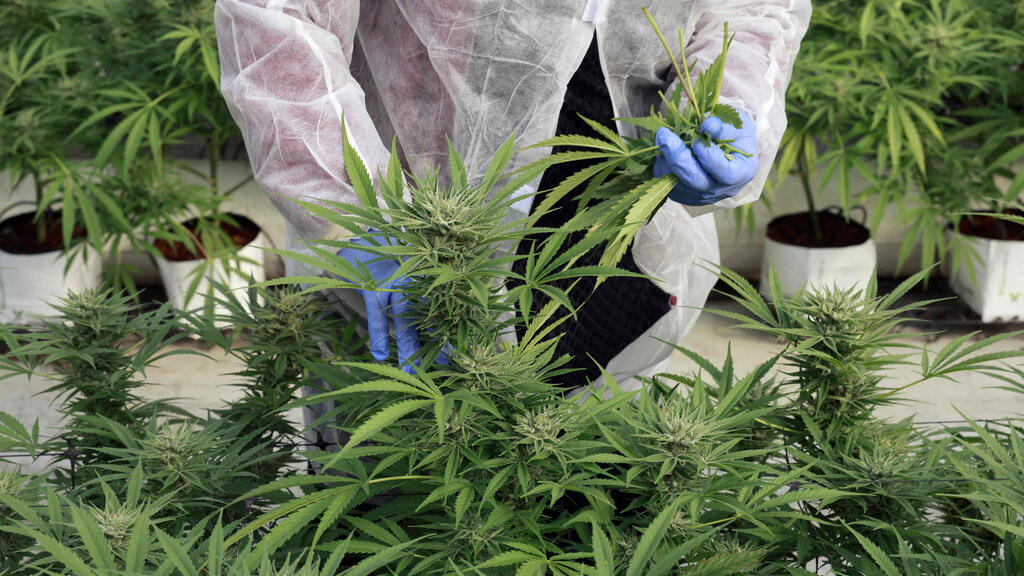

Greenhouse of Israeli company up B.O.L Pharma, which makes medical cannabis products
(Photo: AFP)
“Cannabis is also considered very safe. We don’t hear of people overdosing, so it’s much easier to consume and we’ve seen it legalized in various parts of the world. Treating with psychedelics, is far more complex and must take into account “mindset” (pre-treatment patient preparation) and “setting” (treatment location, the psychologist and the treatment’s auspices). Psychedelics also last longer and require long hours of doctors’ supervision in the clinic. It’s very different to cannabis.”
Nextage primarily researches psychedelic substances, focusing on DMT, the psychoactive ingredient in Ayahuasca (from the Amazon rainforests), 5-MeO-DMT (secreted by the Colorado River Toad) and Ibogaine (found in the root bark of the iboga tree in Africa).
Ibogaine “is very good for treating addiction, facilitating relatively quick withdrawal.” Dreazen continues: "The problem is that it’s toxicity can cause cardiac arrhythmias, so it’s difficult to use medicinally. We’re collaborating with Canadian psychedelic medicine biotech company, MindMed on developing a formula attempting to bypass the heart.”
Where is all this going?
“The trend is to incorporate psychedelic substances - as they are - into therapy in clinical settings. We’ll also see more clinical studies for treating the brain using psychedelic substances for issues that currently have no good treatment. In the coming years, following FDA approval of Spravato (Ketamine), we’ll likely see a second medication on the market. The field is just going to expand…."
It’s not just good news for treating depression and trauma. Psychedelic substances are also being tested for the treatment addiction. This may serve as an alternative to opioid painkillers which, since 1999, have killed half a million American addicted to the opioids themselves. “In Israel too, the last Knesset’s Committee on Drug and Alcohol Abuse reported a marked increase in prescriptions for Fentanyl patches.”
Dreazen explains: “Research into psychedelic substances could also help provide alternative, mostly non-addictive, alternatives to opioids for treating chronic pain. Approximately 10% of the global adult population suffers from chronic pain and the FDA is looking for alternatives to opioids. With so much current research in the field, we believe there’s enormous potential here. “
What’s happening in Israel?
The Health Ministry reports a 5.5% increase in opioid use since 2017. “There has been an increase of over 90% in prescriptions for opioids, painkillers and addictive drugs. From 2017 to 2021, there has been a 70% increase in the number of opioid packs sold in Israel, which has also witnessed an increase in the use of fentanyl patches as well as the patches being sold on the black market and the counterfeiting of prescriptions.”
“The ministry stresses the importance of informed and proper use of opioids, and has initiated steps addressing the matter. A Medical Division circular has been issued on the subject and, for the purposes of control and oversight, the ministry intends to integrate opioid registration into Israel’s National Program for Quality Indicators in Community Healthcare. Regulatory changes for dangerous drugs are to be discussed. This should add further restrictions and stipulations on the registration of opiates. Criminal cases have been opened by the police against individuals selling the Fentanyl patches and other opiate drugs on the black market."
MDMA (Ecstasy)
● Origin: Synthetic
Synthesized in 1912 in the laboratories of Merck pharmaceutical company
● Effects: Feeling of openness, euphoria, empathy, love, high level of self-awareness
● Treatment uses/Research for treatment: PTSD, autism, obesity, ADHD, narcolepsy (sleep disorder)
● More: FDA defined MDMA treatment for PTSD as “groundbreaking.” The study is nearing conclusion
LSD (Acid)
● Origin: Synthetic
First synthesized by Swiss Chemist Albert Hoffman in 1943
● Effects: Consciousness Alteration and synthesis of senses of hearing and seeing. Hallucinations and feeling of detachment from one’s body
● Treatment uses/research for treatment: Depression, anxiety, addiction, cluster headaches, ADHD
● More: Dissolving of self-identity. Research reports some LSD users describing the experience as “unifying with the universe”
Ketamine
● Origin: Synthetic
First synthesized in a laboratory in 1962 and used as an anesthetic
● Effects: Disassociates senses and consciousness, creating an “outer body” experience
● Treatment uses/research for treatment: Depression and alcohol and drug addiction
● More: Acclaimed “Science Magazine” has referred to it as “the most important psychiatric discovery in the last half century”
Psilocybin Mushrooms (Magic Mushrooms)
● Origin: Natural
Approximately 200 varieties
● Effects: Changes in sensory perception and altered sense of time and space
● Treatment uses/research for treatment: Depression, anxiety, cluster headaches, PTSD, OCD, Alzheimer, Anorexia
● More: Over 200 articles published in the last year researching medical uses
DMT (Ayahuasca)
● Origin: Natural
Found in plants
● Effects: Loss of sense of time, visual and audio hallucinations and more
● Treatment uses/research for treatment: Depression, addiction, migraines
● More: The name “Ayahuasca” in the ancient language of the Amazonian tribes means “Vine of the gods”


